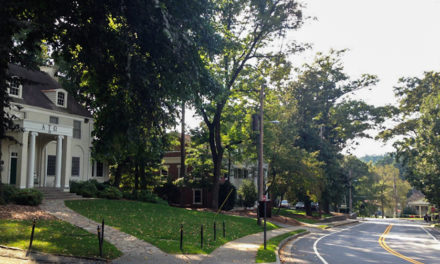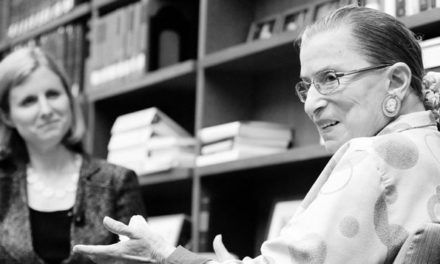During a March 30 Elections Board hearing to address electoral misconduct challenges against two Student Government Association (SGA) presidential candidates, students took issue with the Wheel’s publication of complainants’ names, one of whom requested that the Elections Board grant him anonymity; however, the student body has a right to be informed when a presidential candidate is accused of electoral misconduct.
To ensure transparency and fairness in student government elections, SGA legislators should vote against Bill 51sl65, which would allow challenges to be submitted anonymously to the Elections Board. Student government representatives frequently tout transparency as a priority; we hope they realize that, except in extreme circumstances, protecting sources is less important than keeping the student body informed. Any student who files a challenge should be prepared to stand by their claim and allow the public to evaluate their credibility and motivations behind filing a complaint or submitting further evidence.
The Wheel adheres to the Society of Professional Journalists’ Code of Ethics, which recommends that news organizations identify sources clearly, so that readers can evaluate the credibility of those individuals’ claims. Anonymity is an inherent barrier to that end, and is reserved for extreme cases, such as when the source faces “danger, retribution or other harm.”
It is questionable whether Chair of the Elections Board Betty Zhang (20C) had the means to enforce students’ requested anonymity; all SGA documents are public, per the SGA Constitution; all Elections Board hearings are public, per the Code of Elections; and there is no clause in the Code of Elections that specifically addresses anonymous challenges to the Elections Board. Regardless, granting anonymity to sources hinders the Elections Board’s ability to carry out transparent investigations, and should be avoided.
The Wheel’s news team published factual information relevant to student government elections, all of which was received on the record. While we are disappointed that the Oxford Business Club was “shocked and appalled” by the Wheel’s news coverage, the newspaper’s role is to distribute information to Emory’s student body, even if that means making involved parties uncomfortable.
Some claimed that the Wheel’s coverage of the allegations against SGA presidential candidates Dwight Ma (17Ox, 19C) and Marrio Karras (17Ox, 19B) revealed a bias against those candidates. This accusation is faulty and reveals a lack of knowledge of journalistic practices. While the Wheel’s Editorial Board endorsed Elias Neibart (20C) for SGA president, that endorsement was published independently from the Wheel’s news team, which covered all allegations that were made against candidates. A firm divide exists between the editorial and news sections of the Wheel; the Wheel’s editor-in-chief and copy editors are the only people privy to both news and editorial content.
Time and time again, Emory’s student government has demonstrated that they are capable of making mistakes. Transparent practices and unbiased news coverage protect SGA and the student body from corruption and carelessness, and the Wheel will continue to inform the student body of all relevant information pertaining to student government elections this year and in the future.
The above Editorial represents the consensus opinion of the Wheel’s editorial board.
The editorial board is composed of Nora Elmubarak, Andrew Kliewer, Madeline Lutwyche, Boris Niyonzima, Shreya Pabbaraju, Isaiah Sirois and Mathew Sperling.
The Editorial Board is the official voice of the Emory Wheel and is editorially separate from the Wheel's board of editors.





